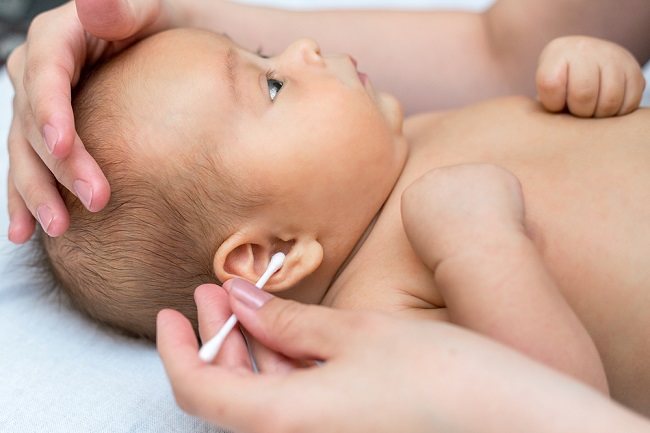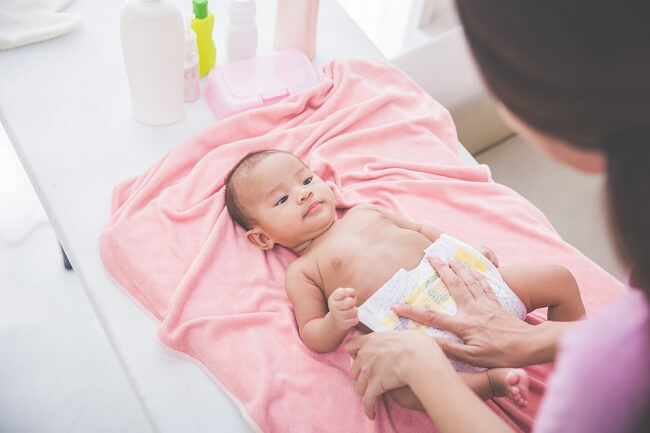Pregnancy can make your body susceptible to infection, sonehis is a vaginal infection. Pregnant women who experience this will certainly worry and wonder if caught vaginal infection when pregnant can be dangerous or not. To find out the answer, let's look at the following review.
Pregnant women are prone to vaginal infections due to their weakened immune system. A number of complaints, such as vaginal discharge, vaginal itching, and an unpleasant odor from the vagina, can be a sign that a pregnant woman has a vaginal infection.

If not treated properly, it has the potential to cause health problems for the fetus in the womb.
Two Common Causes of Vaginal Infections Saat pregnant
Pregnant women need to recognize the symptoms of vaginal infections and their proper treatment. In general, vaginal infections during pregnancy can be caused by two things, namely:
Vaginal infection due to yeast
Vaginal infections due to yeast may be caused by increased levels of pregnancy hormones during pregnancy. High levels of these hormones can make your vagina produce more sugar called glycogen. This substance can make it easier for yeast to grow in the vagina.
If you have a vaginal yeast infection, the symptoms that can appear are:
- White and thick discharge from the vagina. This liquid is odorless.
- The vagina and the surrounding area feel itchy and painful, painful, reddish, and sometimes accompanied by:
- Pain when urinating and having sex.
Vaginal yeast infection is a common problem during pregnancy, especially in the second trimester of pregnancy. This infection does not harm the pregnancy. Even so, the symptoms caused can make you uncomfortable.
In addition, although it does not harm pregnancy and fetal development, this condition can cause thrush in newborns. This happens because the baby comes into contact with the yeast in the vagina when he is born.
Therefore, it is important to treat vaginal yeast infections while pregnant. However, during pregnancy, you should not just treat fungal infections with over-the-counter medicines without a doctor's prescription. Consult your doctor first so you can get medicines that are safe for pregnant women.
Vaginal infection due to bacteria (bacterial vaginosis)
Under normal conditions, the vagina is protected by good bacteria. If the growth of good bacteria is disrupted or the number of good bacteria is reduced, then bad bacteria that cause disease can grow. This condition is called bacterial vaginosis or bacterial vaginosis (BV).
There are several factors that can increase your risk of having a vaginal bacterial infection during pregnancy, including the consumption of antibiotics, the use of vaginal cleansers, hormonal changes during pregnancy, and risky sexual intercourse.
Some women who have BV do not experience any symptoms. However, if this infection causes symptoms, you may experience:
- A fishy-smelling discharge that is white or gray in color from the vagina. In certain cases, the liquid can be foamy.
- Itching or stinging that can also be felt around
- Pain when urinating.
In pregnant women, vaginal infections caused by bacteria that are not handled properly can increase the risk of pregnancy complications, such as miscarriage, premature birth, low birth weight babies, and pelvic inflammation after childbirth.
If this disease occurs due to unsafe sex, then you, your partner, and the baby in the womb are also at risk for sexually transmitted diseases (STDs), such as herpes, chlamydia, and gonorrhea.
Vaginal infections caused by bacteria can generally be treated using antibiotics prescribed by a doctor, either in the form of tablets to be taken orally or as ointments that are applied to the vagina.
This method can prevent you from getting a vaginal infection Saat pregnant
There are several things you can do to avoid vaginal infections during pregnancy, namely:
- Avoid cleaning the vagina with soap or feminine hygiene liquid. Just clean your vaginal area with warm water.
- Use loose underwear made of cotton so that it can absorb sweat around the genitals.
- Try to sleep without wearing underwear, to facilitate the exchange of air into your intimate area.
- Clean the vagina from front to back, that is, from the vagina to the anus, not the other way around.
- After swimming or doing activities that make your underwear wet, immediately change to dry underwear.
- Use a condom during sexual intercourse.
Even though there are many over-the-counter medicines that can be purchased without a prescription to treat vaginal infections, it is still advisable to consult a doctor if you experience a vaginal infection during pregnancy. This aims to determine what the cause is, as well as determine safe treatment.









